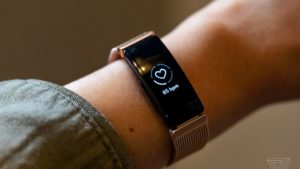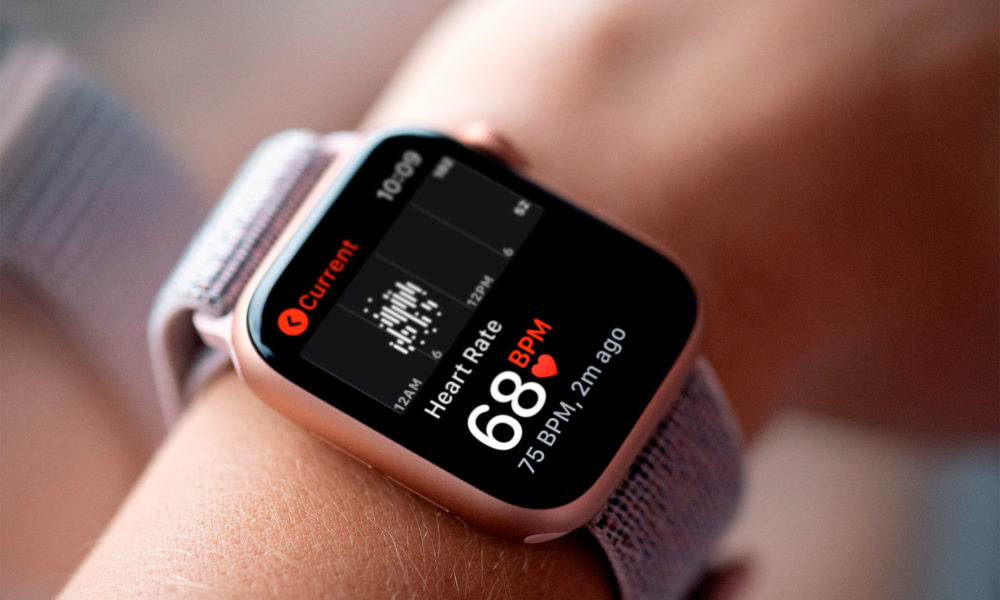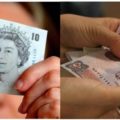New studies have revealed that the Apple Watch — as well as other smartwatches like Fitbit and Garmin’s — can detect Covid-19 in individuals around 7 days prior to showing any symptoms. In light of the World Health Organization and Moderna CEO’s consensus that the novel coronavirus is here to stay, this is BIG NEWS! But also fishy news…
We’re here to help you decide if it’s true.
Covid-19, similar to other infections, causes inflammation in the body. This inflammation results in subtle changes in heart rate, even during the incubation period, before patients have experienced any symptoms. This is where smartwatches come into play.
Because these wearables are able to detect changes in vital signs, they can alert users to these changes even before they experience any symptom, potentially facilitating earlier detection of Covid-19 and better control of its spread.
Two independently conducted studies from notable institutions — Stanford University, and Mount Sinai Health System — in addition to an internally conducted study at Fitbit Inc. have investigated this throughout 2020; showing promising results, and causing a global stir with an intriguing proposition:
How Can Apple Watches Detect The Infamous Covid-19?
New York-based hospital network Mount Sinai Health System (MSHS) conducted a 5-month “Warrior Watch” study from April to September 2020. The study followed 297 Mount Sinai health care workers who constantly wore the watch and installed the Warrior Watch App to monitor its biodata readings over those 5 months. MSHS researchers reported that Apple watches were able to detect minor changes in the users’ heart rate up to seven days before symptoms appeared, or infection was detected through testing.

The Apple Watch measures a user’s heart rate – Photo via The Verge
“This study really highlights where digital health is moving. It shows that we can use these technologies to better address evolving health needs, which will hopefully help us better manage disease in the future.”- Dr. Rob Hirten, Assistant Professor of Medicine at the Icahn School of Medicine of Mount Sinai to CBS News.
The study analyzed one specific metric called heart rate variability (HRV). This is the time difference between each heartbeat. HRV is an indication of the individual’s autonomic nervous system, which responds to the inflammation caused by Covid-19. The study showed that significant changes in HRV are present between those who developed a Covid-19 infection and those who didn’t.
The watch automatically collects this data as long as it’s on your wrist, setting this method of digital detection apart from existing ones that rely on self-reporting of symptoms through health apps.
Although Apple Inc. wasn’t involved in participating in or funding the study, Apple’s CEO Tim Cook boasted MSH’s study in the company’s virtual product launch in September 2020.
Stanford University Chipped In, Including Other Smartwatches In Its Study
Stanford University researchers conducted a study on participants who wear a variety of activity-tracking watches such as Garmin, Fitbit, and Apple. This study was launched in March 2020; examining 32 Covid-19 patients and 73 healthy applicants from a pool of over 5000 participants.
Participants wore their fitness trackers and logged daily symptoms and health data through Stanford University’s medical application; MyPHD. The team developed an online detection algorithm to identify the early stages of infection by real-time heart rate (not HRV) monitoring, in addition to an alarm system to alert wearers of prolonged heart-rate elevations.
Concluding the study in June, Stanford’s “Covid-19 Wearables Study” published its findings in November 2020 on Nature Biomedical Engineering. Smartwatch data was able to identify nearly two-thirds of COVID-19 cases four to seven days before visible symptoms appeared. 81% of Covid-19 patients experienced changes in their heart rate, number of daily steps or time asleep, up to 9 or more days ahead of symptoms.

Garmin smartwatch measures a user’s heart-rate variability across 4 hours – Photo via Wareable
“The problem is you can’t do it on people all the time, whereas these devices measure you 24/7. The smartwatch gives you back the data right away, in real time, whereas if you’re lucky you’ll get your test back in a few days.”- Stanford University Professor and Leader of the Covid-19 Wearables Study, Michael Snyder — on novel coronavirus tests — to CBS News.
The team expressed their confidence in using health-tracking devices for large-scale and real-time infection detection of respiratory diseases before patients experience symptoms.

Fitbit smartwatch measures a user’s heart rate – Photo via The Verge
While Fitbit hasn’t released further studies, the rest of their initial findings were published here.
How Does A Smartwatch Compare to The PCR? It Does Not. However…
The PCR remains the test that can confirm a diagnosis of Covid-19 with high accuracy. It’s used in either one of these scenarios: a) you’re symptomatic, or b) you’ve come in close contact with an infected or symptomatic patient.
However, the medical equipment required to perform the test is costly, and so wide enough availability can be difficult to achieve. The cost for the consumer is also high; the price of a PCR test in Egypt is around EGP 2,000. In addition to that, it takes a few days to get your test result back in light of pressing demand on them.
Smartwatches can help compensate for these shortcomings. While you cannot keep getting a PCR willy-nilly, your smartwatch can monitor your body and alert you as long as you wear it regularly. It can alert someone who is potentially infected to isolate themselves and get tested, preventing spread, and catching the disease early.
This makes them a potential practical safeguard during such a prolonged and deadly pandemic. Of course, not everyone owns a smartwatch, and their initial cost can be high. The Apple Watch is averagely priced at LE 8500.
Still, this is exciting news…
While smartwatches have proven to be on the road to revolutionizing their health-tracking performance; would you trust your smartwatch with this task, or are you going to wait for more studies before you do so?




























